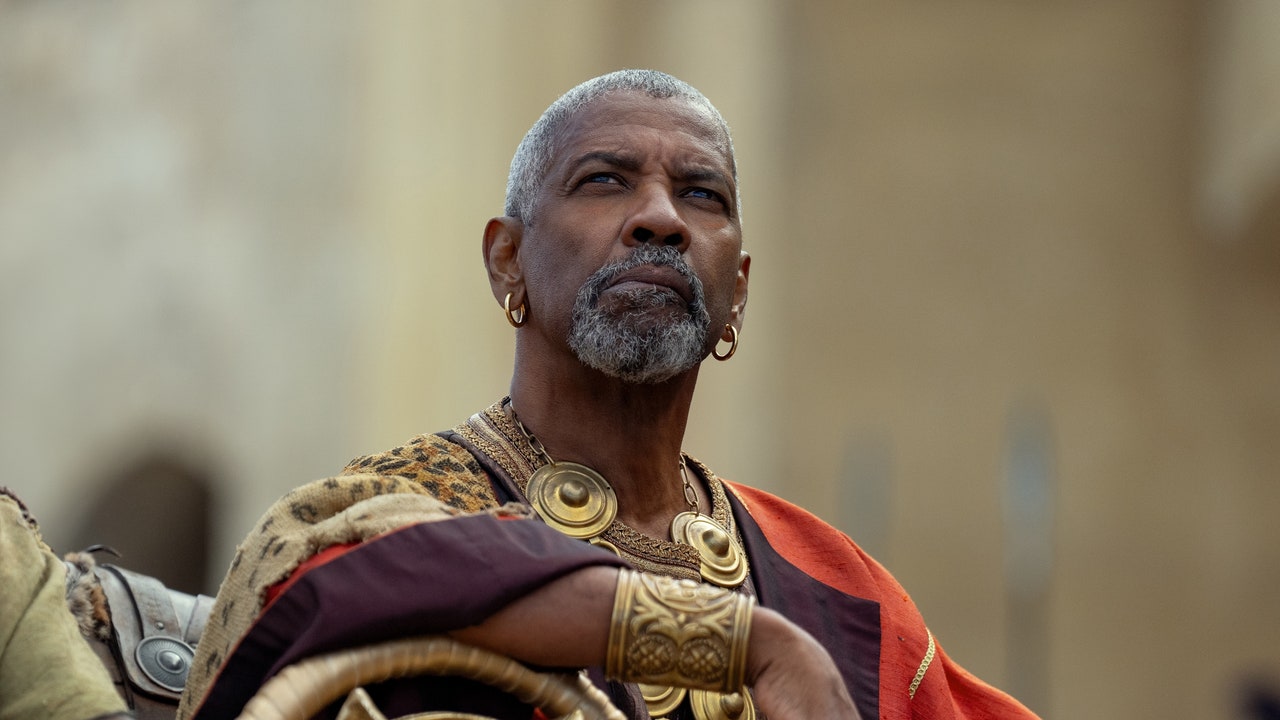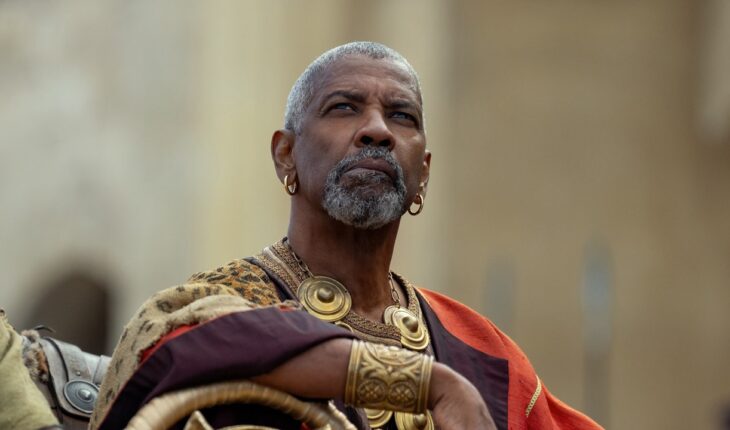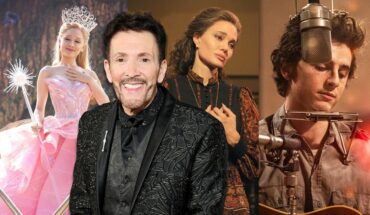
The tagline for Ridley Scott’s 2000 film Gladiator was succinct and effective: “The general who became a slave. The slave who became a gladiator. The gladiator who defied an emperor.” That tells us pretty much all we need to know about the film’s plot, promising a rousing journey of fall and rise, which Gladiator mightily delivered. A tagline for Gladiator II (in theaters November 22) would have to be a bit more complicated: “The warrior who becomes a slave, the slave who becomes a gladiator, the gladiator who defies two emperors but also some other bad guys and maybe one kinda good guy, but also the warrior/slave/gladiator is actually a Roman prince who is heir to the empire, but no one really knows that.” The simplicity of the past is missed.
There’s much missing in the sequel. Gone is the rich visual texture of its predecessor, which was shot on film, replaced with the flat, blandly lit tinniness of digital. Joaquin Phoenix’s brilliantly sniveling, sinister turn as the wicked Commodus gets a pale imitation in the form of the quite literally pale Joseph Quinn and Fred Hechinger, as a pair of brother emperors who flit about in the background like campy Halloween ghosts. Most dismayingly, the grand emotional sweep of the first film is nowhere to be found in Gladiator II; the sequel is epic in length and spectacle, but not in feeling.
Paul Mescal, rippling and scruffy, plays Hanno, a farmer-soldier living in Numidia, on the north coast of Africa, with his wife. Their relative idyll is soon violently disrupted by the Romans, who were prone to violent disruption in those days, and Hanno becomes a spoil of war, sold into the gladiatorial system and shipped off to Rome to fight and die—or, as he’d prefer it, to exact his revenge. Hanno arrives in a city riven with conflict, suffering under the vainglorious rule of its twin emperors, infrastructure creaking with the weight of corruption, rebellion fomenting in the streets and in dark chambers where powerful people plot a coup.
One of those conspirators is Lucilla (Connie Nielsen), the daughter of Marcus Aurelius and former clandestine lover of Maximus, the hero of the first film. She’s now married to Pedro Pascal’s General Acacius, a formidable military man who has grown sick of all the bloody conquest demanded by the emperors. Through a series of somewhat contrived circumstances, Lucilla soon realizes that Hanno, now a rising Coliseum star, is not Hanno at all, but rather Lucius, the son she sent away for safekeeping after the events of the first film.
So there is family drama here, a homecoming that Hanno wants no part of. Gladiator II is about the hope for a better Rome, but also about a justified disgust at the whole imperial enterprise. Exploiting those fissures is arms dealer and gladiator trader Macrinus, a clever and shifty operator played by a florid, fabulous Denzel Washington. He’s the true machinator of the story, playing an invisible long game in his quest for power and retribution.
There are a lot of moving parts to the narrative, and yet that tangle doesn’t create a sense of a dense and fascinating city in revolt. There’s some binding energy missing here; the story’s many parts never coalesce into a compelling whole. Despite a 148-minute run time, Gladiator II is oddly hurried, zigging this way and that as it tries to whip up a storm of dynastic struggle and intrigue. Hanno gets lost in the shuffle, becoming less of a character than another mere piece on the game board.
Of course, a movie like this can always fall back on its combat scenes. Scott goes maximal in that regard, staging arena fights involving baboons, sharks, a rhinoceros, boats. They are impressive in a technical sense, but they also conjure up little of the first film’s brutal horror. Those battle sequences had stakes; in these, the outcomes are too obviously foregone conclusions. And as ever, a heavy reliance on CGI (which doesn’t look all that good) proves more alienating than awe-inspiring.
Scott does manage some moments of wonder, though, especially as the film builds toward its climax. There, at long last, is the feeling of terrible momentum that Gladiator II has been trying for two hours to create, the idea that history is unfolding in real time as these characters try to bend the will of fate in a righteous direction. It may be no coincidence that this is when Scott weaves in some of Hans Zimmer’s original score, such a soaring and evocative piece of music. The keen and rumble of an older mythos descends on this lesser tale and in so doing elevates it. Hanno’s arc suddenly matters, his place in the Gladiator firmament finally clear.
It takes a long while to get there, though, a middling trek through the Roman wilderness occasionally enlivened by one of Washington’s mesmerizing flourishes. His is the film’s real portrait of danger and mad drive, of the carefully planned toppling of a vast and crushing system. Hanno, played with quiet force by Mescal, is no match for Macrinus and his ruthless, sophisticated maneuvering of the ancient world’s precarious hierarchy. And he hardly even has to pick up a sword to do it.





